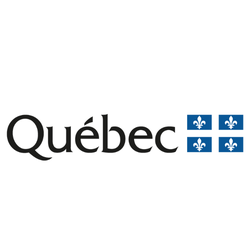
REGI — Business Scale-up and Productivity — CED (QC) — Not-for-profit
At a glance
- Up to 50% of project cost
- Unspecified
- Manufacturing
- Information and cultural industries
- Quebec
- Non-profit
- Public or Parapublic institution
- For-profit business
- Non-financial cooperative
- All revenue ranges
- All organization sizes
- Indigenous Peoples
- Economic, Social and Community Development
- Employment and Training
- Business Associations
- Indigenous peoples
- Business owners / entrepreneurs
- Nonprofits / charities
- All structures
- Local
- Regional
- Provincial
- National
Overview
The grant aims to stimulate innovation and growth for businesses at various development stages, offering financial assistance up to 50% of eligible costs for SMEs and 90% for non-profits. It supports projects that promote expansion, productivity, and innovation through activities like equipment acquisition, technology adoption, market development, and management improvements.
Activities funded
This grant supports projects that aim to increase business productivity and expansion through innovation. Eligible activities are designed to enhance production capacity, adopt new technologies, and develop new market strategies.
- Acquisition of production equipment, machinery, and digital infrastructure.
- Evaluation, adaptation, or adoption of new production technologies and processes.
- Activities to boost productivity and innovation capacity.
- Implementation of commercialization and market development strategies.
- Participation in trade fairs and prospecting visits.
- Hiring marketing personnel and conducting advertising campaigns.
- Market diagnostics and studies.
- Technology showcases and demonstrations.
- Hiring resources to form high-performance teams.
- Adoption of best practices and management systems, such as integrated management software.
Eligibility
Eligibility for this grant is determined by the type of organization applying and the nature of the proposed project.
- The applicant must be a Small or Medium Enterprise (PME), a Cooperative, a Business Group, a Non-Profit Organization (OBNL), a Business Support Organization, or an Indigenous organization.
- Retail businesses, food services, transportation services, residential construction, daycare services, salons, nightclubs, bars, and cabarets are not eligible.
Who is eligible?
This grant potentially offers financial support for projects from small and medium enterprises (SMEs), cooperatives, business groups, non-profit organizations (NPOs), business support organizations, and Indigenous organizations. These entities must be involved in sectors that include manufacturing, food processing, information and communication technologies (ICTs) and multimedia, or life sciences, although other sectors may also be eligible."
Who is not eligible
This grant excludes certain companies and industries based on their main activities. The aim is to focus resources on sectors promoting innovation, productivity, and growth.
- Retail businesses, such as clothing stores and grocery stores.
- Food service establishments, including restaurants and cafés.
- Transportation services.
- Residential construction companies.
- Daycare services.
- Hair salons and beauty salons.
- Nightclubs, bars, and cabarets.
Eligible expenses
The eligible expenses for this grant are those directly related to the project's execution, deemed reasonable by DEC, and essential for its completion.
- Costs directly linked to the project's essential activities.
Eligible geographic areas
This grant includes special conditions for entities located in economically vulnerable regional county municipalities (MRC) and the East of Montreal. This targets areas identified for regional economic improvement within Quebec, Canada.
- Economically vulnerable regional county municipalities (MRC) in Quebec.
- The East of Montreal, Quebec.
Selection criteria
The evaluation and selection of projects for this grant are based on specific criteria, but specific point scores have not been explicitly given in the context provided.
- Expected results of the project.
- Viability of the business or non-profit organization.
- Technical and financial management capacity.
- Contribution of partners in financial resources or professional services.
- Degree of risk associated with the project.
How to apply
Eligibility Verification
- Confirm that your company or organization is in an eligible sector, such as manufacturing or information technology.
- Check the specific criteria such as the location of the organization in an economically vulnerable RCM.
Preparation of the documentation
- Write a project proposal describing the planned activities such as the acquisition of equipment or marketing.
- Develop a detailed budget specifying the eligible costs to be covered by the grant.
- Prepare supporting documents, such as market diagnostics or feasibility studies.
Collaboration with partners
Submission of the request
- Contact the funding agency to obtain the official application forms.
- Fill out the application form by providing all the required information.
- Attach all relevant documents such as the project proposal and budget.
Sending the request
Follow-up on the request
- Wait for confirmation of receipt of your request.
- Prepare to respond to any request for additional information from the organization.
Additional information
Here are additional relevant details for this grant:
- The grant is part of the CERI program, which may have wider implications or opportunities for collaboration within the program framework.
- Grants for SMEs are interest-free, implying cost savings compared to traditional financing.
Frequently Asked Questions about the REGI — Business Scale-up and Productivity — CED (QC) — Not-for-profit Program
What is the REGI — Business Scale-up and Productivity — CED (QC) — Not-for-profit?
How much funding can be received?
Who is eligible for the REGI — Business Scale-up and Productivity — CED (QC) — Not-for-profit program?
What expenses are eligible under REGI — Business Scale-up and Productivity — CED (QC) — Not-for-profit?
Who can I contact for more information about the REGI — Business Scale-up and Productivity — CED (QC) — Not-for-profit?
Where is the REGI — Business Scale-up and Productivity — CED (QC) — Not-for-profit available?
Is the REGI — Business Scale-up and Productivity — CED (QC) — Not-for-profit a grant, loan, or tax credit?
More programs like this

MAPAQ — Food Processing Program — Component 2
Ministry of Agriculture, Fisheries and Food (MAPAQ)
Support for biofood exports - individual projects
Ministry of Agriculture, Fisheries and Food (MAPAQ)
ÉcoPerformance — Recommissioning of building mechanical systems
Gouvernement du Québec
Individual Market Access Support (SIAM)
Aliments du Québec
Export and cultural visibility support program
Société de développement des entreprises culturelles (SODEC)
Tax holiday for a new business created to commercialize intellectual property
Ministère de l'économie, de l'innovation et de l'énergie du Québec (MEIE)
GHG Challenge Program - Industry
Environnement Québec (MELCC)
Economic development program to help revitalize territories (DEPART)
Investissement Québec (IQ)
Call for collaborative and structuring innovation projects in Quebec's strategic sectors
Gouvernement du Québec